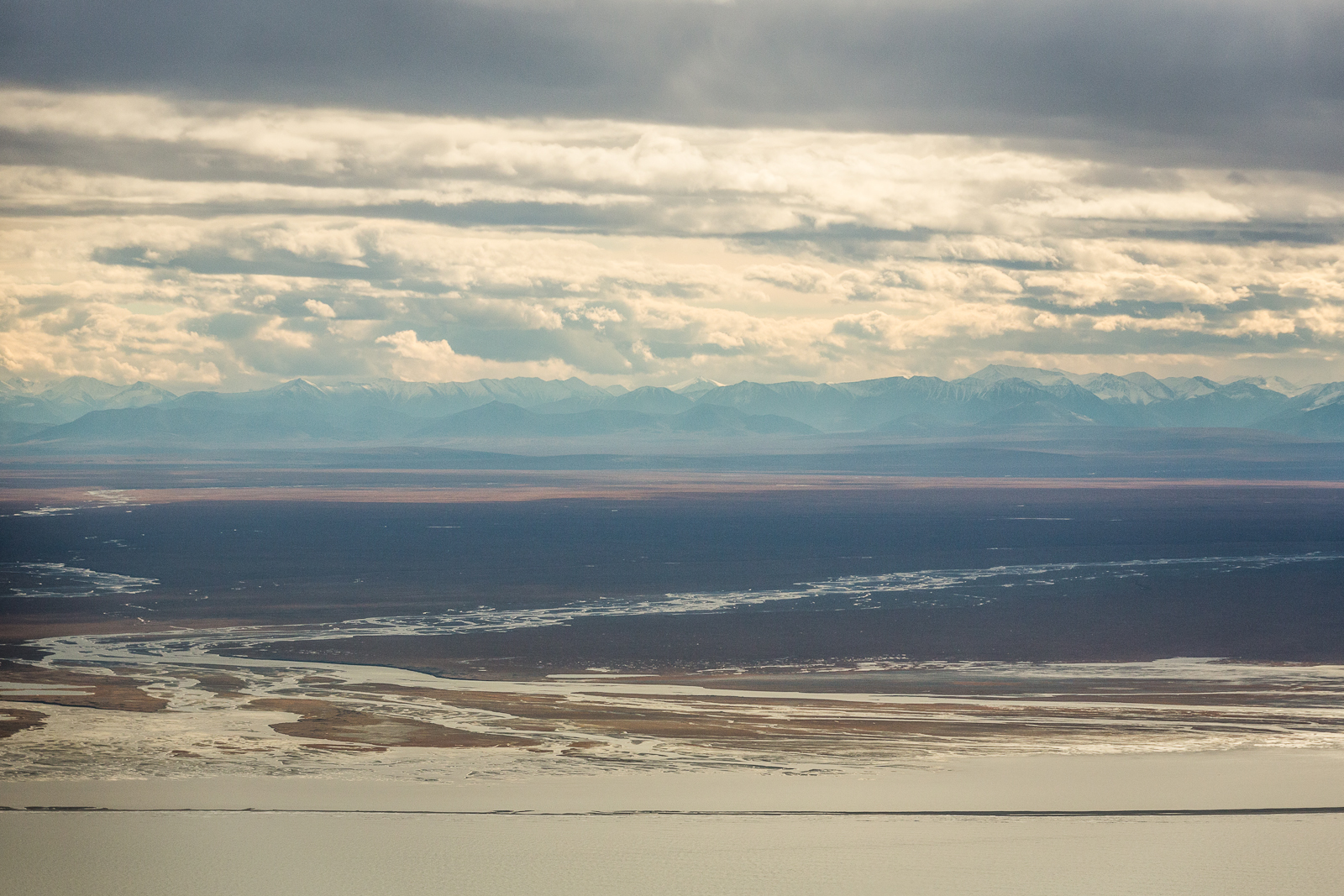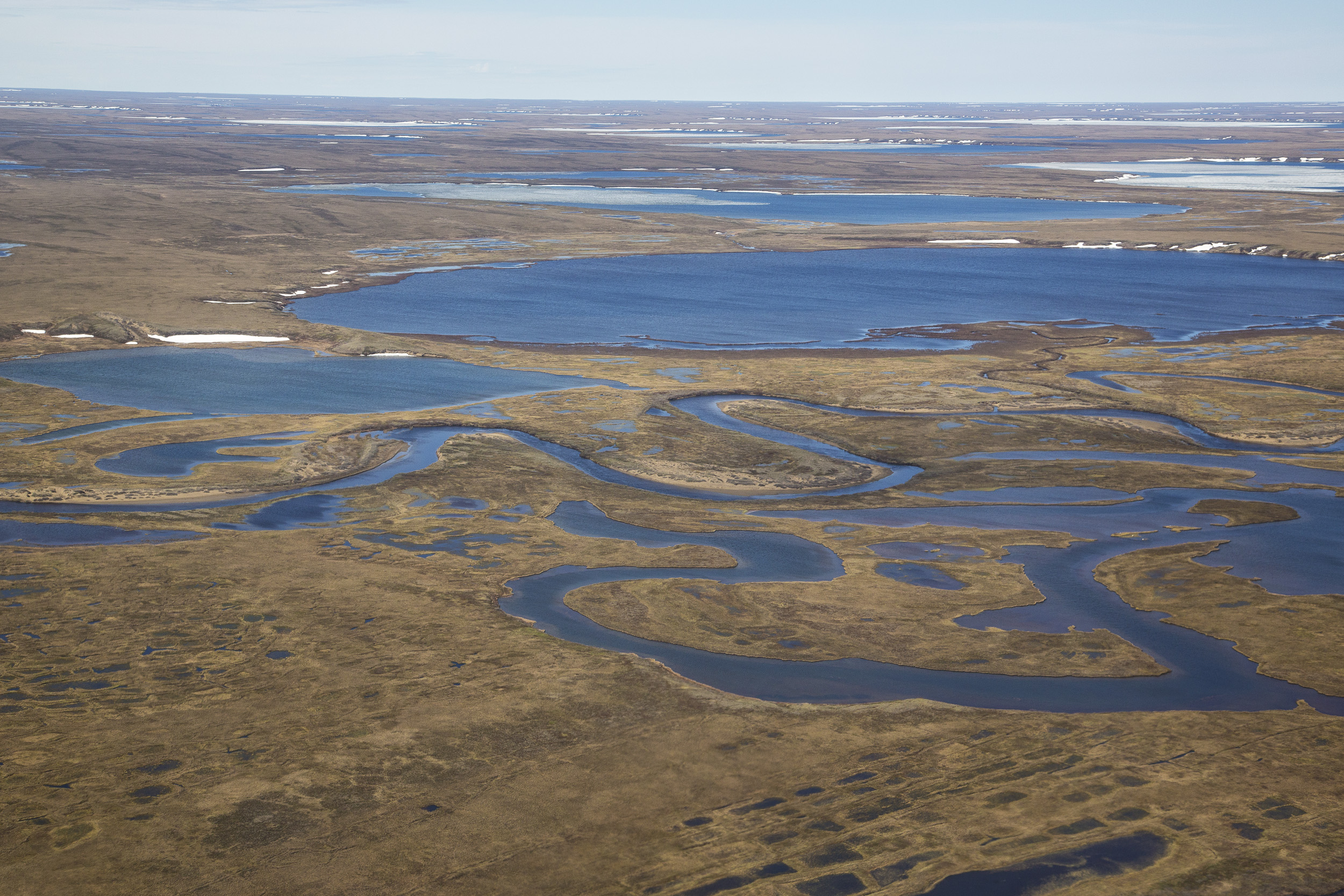Trump’s ‘drill, baby, drill’ energy policies are being met by ‘sue, baby, sue’

WASHINGTON — President Donald Trump promised to grow jobs by rolling back Obama-era energy and pollution rules. And he’s fulfilling his pledge, but not how he intended.
In just six months, Trump’s policies have resulted in a surge in employment — for environmental lawyers.
Since Trump took office, environmental groups and Democratic state attorneys general have filed more than four dozen lawsuits challenging his executive orders and decisions by the U.S. Environmental Protection Agency, Interior Department and other agencies. Environmental organizations are hiring extra lawyers. Federal agencies are requesting bigger legal defense budgets.
The first round of legal skirmishes has mostly gone to the environmentalists.
Earlier this month, the U.S. Court of Appeals for the D.C. Circuit blocked the administration from delaying Obama-era rules aimed at reducing oil industry releases of methane, a potent greenhouse gas. On June 14, a federal judge ruled against permits issued to complete construction of the Dakota Access pipeline, a partial victory for the Standing Rock Sioux tribe, which claims its hunting and fishing grounds are threatened by the oil pipeline.
Abigail Dillen, a vice president of litigation for Earthjustice, a nonprofit organization that filed the Dakota Access lawsuit, said her group and others are girding for years of court battles over bedrock environmental laws, such as the Clean Water Act and Clean Air Act. Earthjustice has increased its staff of lawyers since November to 100, and is planning to hire another 30 in coming months.
“What we are seeing is unprecedented,” said Dillen, whose California-based organization was previously known as the Sierra Club Legal Defense Fund. “With this administration, we face a disregard to basic rules of environmental decision-making.”
Trump swept to office vowing to boost coal and petroleum production, while ridding the nation of “job-killing regulations.” He’s worked to rapidly deliver on those promises. But the speed of his regulatory rollback — without a full legal team in place to vet new policies — has created a target-rich environment for litigation.
Altogether, environmental groups have sued the administration more than 50 times in federal court since Trump took office five months ago, according to a McClatchy review of the federal Public Access to Court Electronic Records (PACER) database. One group alone, the Center for Biological Diversity, has filed or joined in 25 suits, including ones seeking documents related to Trump’s planned border wall with Mexico and Trump’s approval of the Keystone oil pipeline.
In March, the group bragged on Twitter, “We’ve sued #Trump every week since 1/22. 3 suits today brings total to 15!”

During the presidency of Barack Obama, environmental groups also filed suits, both to toughen administration regulations and also to defend policies challenged by industry. Now, said Dillen, “the old work hasn’t gone away, and this administration has created new work for us.”
Environmental law groups have enjoyed a surge in contributions since Trump’s election, much like the ACLU and other organizations fighting Trump’s immigration policies. Earthjustice saw its fundraising increase 160 percent from the election through January, compared to the same period last year.
Federal agencies recognize they are flying into a suit storm. Several are seeking extra budget resources — or at least trying to avoid cuts — to defend the administration’s policies in court.
The Interior Department’s Office of the Solicitor, for instance, recently told Congress that it will need “substantial attorney resources” to handle an expected influx of cases. In its $65 million budget justification for Fiscal Year 2018, the solicitor’s office said: “We can also expect litigation on virtually every major permitting decision authorizing energy development on federal lands.”
It is a reasonable expectation. On Monday, Earthjustice filed suit against Interior’s attempt to delay an Obama rule limiting releases of methane from oil and gas operations on public lands. The lawsuit was filed in U.S. District Court in California on behalf of tribal groups and several environmental organizations including the Sierra Club, Natural Resources Defense Council and Wilderness Society.
Interior also faces lawsuits on plans to open tens of thousands of acres of public land to coal industry leasing, and the proposed removal of bans on new offshore oil drilling in the Arctic and Atlantic oceans.
The suits are piling up at the EPA, too. Environmentalists are suing over the agency’s refusal to ban a controversial pesticide, chlorpyrifos; its delay of rules aimed at preventing chemical plants accidents; and its delay on implementing rules on coal plant discharges into public waters.
During the Obama administration, industry groups and Republican state attorneys general engaged in their own litigation storm. As the top legal officer of Oklahoma, Scott Pruitt solicited industry contributions to build up the war chest of the Republican Attorneys General Association. He also filed or helped file 14 lawsuits against the EPA. In January, Trump tapped Pruitt to serve as EPA administrator, putting him in a position to unravel Obama-era policies he previously had litigated against.
Democratic attorneys general are now ramping up their own fundraising and are filing or joining in suits against Trump’s environmental, immigration and education policies. AGs such as California’s Xavier Becerra, Pennsylvania’s Josh Shapiro and Washington state’s Bob Ferguson are all raising their profiles with these lawsuits. All are seen as contenders for future seats as governor or U.S. senator.
The litigation surge is not going unnoticed by congressional Republicans. They’ve restarted a campaign to counter what they call “abusive” use of the courts by environmentalists and other groups. On June 28, the GOP-controlled House held a hearing focusing on lawsuits against the Interior Department, which manages the nation’s vast public lands.
“A legal sub industry has thrived from endless environmental litigation, while burdening the livelihoods of countless citizens,” said U.S. Rep. Mike Johnson, R-LA, vice chair of House Natural Resources Subcommittee on Oversight and Investigations. Excessive litigation, he added, “drains our taxpayer dollars away from good stewardship of our natural resources.”
At the EPA, Pruitt finds himself in the awkward position of wishing the courts would dismiss litigation he filed against the agency while serving as Oklahoma attorney general. One of those suits was against Obama’s Clean Power Plan, which would set the nation’s first limits on carbon emissions from power plants.
In March, Trump’s Justice Department asked the U.S. Court of Appeals in the D.C. Circuit to indefinitely suspend the lawsuit Pruitt had filed. Apparently, the administration was concerned that if the litigation continued, the court could rule in favor of the Clean Power Plan, forcing the White House to implement a climate initiative it opposes.
In a partial victory for the administration, the appeals court in April put the litigation on hold, and asked for more information before it decides on the case going forward. Depending on the court’s final ruling, the White House will likely be allowed to go ahead with full revocation of the regulations.
Revocation of the Clean Power Plan, however, could prompt another lawsuit. Environmental groups contend the EPA is obligated to address climate pollution under the Clean Air Act.
McClatchy’s Ben Wieder contributed to this report.